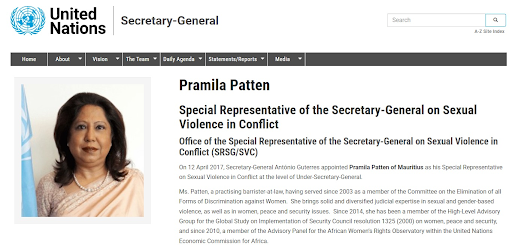New York Times's Sexual Violence Exposee challenged by Kibbutz leaders: “It’s not true"
Kibbutz Be'eri spokesman Michal Paikin denied the accounts contained in the report published by the New York Times in December of last year, under the title "Screams Without Words," in which allegations were made about Hamas' use of "violence." The body was used as a weapon on October 7,” according to the newspaper’s description.
In his statements to the Intercept, the spokesman for Kibbutz Be'eri, an agricultural community within the Gaza Strip, refuted the accounts reported by the American newspaper.
He said that “two of the three victims, who were specifically singled out by the New York Times in a report published in December, which claimed that Hamas deliberately used sexual violence as a weapon during the October 7 attacks, were not in fact "You are victims of sexual assault."
The Intercept website noted that "Paikin's rejection of the Times report on the kibbutz further undermines the credibility of the controversial article."
The American news site added, "One of the victims of the alleged sexual assault, known as the woman in black, was Gal Abdush, whose family members objected to the allegations made by The Times."
When Paikin was asked, as The Intercept reported, about the other two victims, he replied, "They were just shot. I'm just saying, but they were shot, they were not sexually assaulted."
In his interview, Kibbutz Be'eri spokesman Michal Paikin also questioned "the graphic, highly detailed claims of the Israeli special forces medic, who served as the source of the claim, and which were published in the New York Times, the Washington Post, CNN, and other media outlets." .
The Israeli newspaper Haaretz reported, in an article in January, that “the Israeli police are finding it difficult to find eyewitnesses to confirm that sexual assaults were committed on October 7th.”
In the second half of last February, United Nations human rights experts expressed their deep concern about the arbitrary detention of hundreds of Palestinian women and girls, including human rights defenders, journalists and humanitarian workers, in Gaza and the West Bank, since 7 October.
The experts added in their report: “We are particularly distressed by reports that detained Palestinian women and girls have also been subjected to multiple forms of sexual assault, such as being stripped naked and searched by male officers in the Israeli army.”
The experts said that "at least two Palestinian detainees were raped, while others were reportedly threatened with rape and sexual violence."
Related to this matter, Pramila Patten, Special Representative of the Secretary-General of the United Nations for Sexual Violence in Conflict Areas, was criticized by journalists due to a report she prepared at the request of Israel to investigate allegations of sexual violence during the “Al-Aqsa Flood” attack last October 7.




















